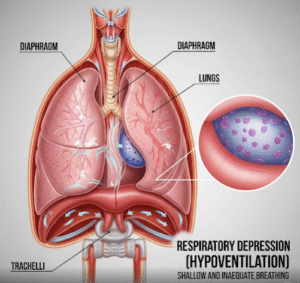Overview
Systemic enterovirus infection is a condition where enteroviruses spread throughout the body, potentially affecting multiple organs beyond the gastrointestinal tract. While many enterovirus infections are mild, systemic involvement can lead to severe complications such as myocarditis, encephalitis, or sepsis-like illness. In Korea, public health systems closely monitor enterovirus outbreaks, especially in children, due to their potential to cause severe illness.
What is Systemic Enterovirus?
Enteroviruses are a group of RNA viruses that typically spread via the fecal-oral route, respiratory droplets, or direct contact. Most infections remain localized to the gut or respiratory tract, but in systemic cases, the virus spreads through the bloodstream (viremia) to various organs, including the brain, heart, skin, and liver. This can result in serious disease, especially in newborns, immunocompromised individuals, and patients with underlying health conditions.
Symptoms
- Fever and malaise
- Rash (maculopapular or vesicular)
- Muscle aches
- Sore throat
- Gastrointestinal discomfort or diarrhea
- Neurological symptoms (headache, confusion, seizures) in severe cases
- Cardiac symptoms such as chest pain, palpitations, or shortness of breath if myocarditis develops
Causes
- Caused by various enterovirus strains, including coxsackieviruses, echoviruses, and enterovirus 71 (EV71).
- Transmission occurs through:
- Fecal-oral route (contaminated food/water)
- Respiratory droplets
- Direct contact with contaminated surfaces or secretions
Risk Factors
- Age: Infants and young children are most susceptible
- Weak immune system (HIV, cancer treatment, immunosuppressive drugs)
- Living in crowded environments (daycare centers, schools)
- Poor hygiene practices
- Seasonal factor: More common in late spring to autumn in Korea
Complications
- Viral meningitis or encephalitis
- Myocarditis or pericarditis
- Hepatitis
- Sepsis-like syndrome in newborns
- Paralysis (rare)
Prevention
- Frequent and thorough handwashing
- Avoid sharing utensils, bottles, or towels during outbreaks
- Disinfect frequently touched surfaces
- Keep infected individuals away from school or public gatherings until recovery
- Public health awareness during seasonal peaks in Korea
Treatment Options in Korea
In Korea, management focuses on supportive care and preventing complications:
- Hospitalization for severe cases, especially infants or those with organ involvement
- Intravenous fluids to maintain hydration
- Antipyretics for fever control
- Antiviral agents are not widely available for enteroviruses, but experimental therapies may be used in severe cases
- Specialized care for complications:
- Neurology for meningitis/encephalitis
- Cardiology for myocarditis
- Advanced monitoring in tertiary hospitals like Seoul National University Hospital or Asan Medical Center
- Public health reporting to the Korea Disease Control and Prevention Agency (KDCA) for outbreak tracking and control













